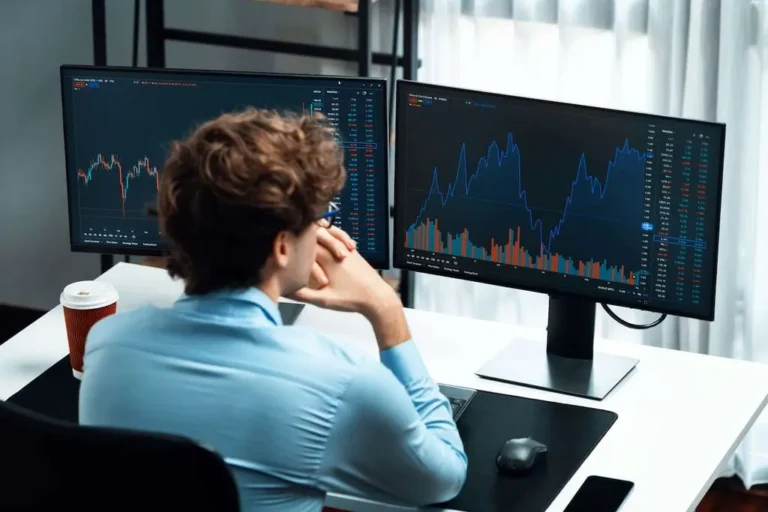Market Maker Vs Liquidity Provider: Key Variations
They work underneath the B-book model, taking the other facet of their customer’s trades and don’t move the orders to liquidity suppliers. When an investor with a great amount of capital buys and sells extensive quantities of an asset, the impression on prices and other traders could probably be dramatic. Liquidity providers help the markets maintain equilibrium even in the face of huge transactions. Core liquidity providers make a market for liquidity provider vs market maker an asset by providing their holdings on the market at any given time whereas simultaneously shopping for more of them. The two varieties are primarily separated by their institutional capabilities and scopes. Tier 1 LPs are by far the largest organisations in this area of interest, able to supplying the sector with massive volumes of liquidity.
Market Makers Vs Liquidity Providers: Primary Differences
Liquidity suppliers and market makers assist slim spreads, cut back slippage, and supply aggressive costs for traders. This liquidity and pricing efficiency attract members, starting from individual merchants to giant monetary institutions, fostering a vibrant forex market ecosystem. Market makers supply a quantity of benefits to merchants and the general market ecosystem. By continuously quoting bid and ask costs, market makers make positive that traders can execute their orders promptly, even in much less liquid markets. This liquidity provision helps preserve market stability and promotes confidence among market participants. A market maker is one other participant in the financial markets that gives liquidity.

Challenges Confronted By Market Makers
This, in flip, ensures that there is a steady flow of buying and selling exercise and helps preserve the attractiveness of the marketplace for issuers seeking to increase capital. These suppliers embrace companies that manipulate interest rates, overseas trade rates, and business banks. Large banks, trading flooring, brokerage companies, sizable funds, and rich individuals would possibly all be amongst them. Financial markets remain liquid—meaning traders can constantly buy and sell property on demand—thanks to core liquidity providers. These are sometimes banks and other financial companies that buy and sell giant portions of property to make sure their availability. Understanding the distinctions between liquidity suppliers and market makers is crucial for traders aiming to optimize their strategies.
Advantages Of Utilizing Liquidity Providers
Liquidity suppliers provide deep liquidity and competitive pricing, contributing to market effectivity and stability. Market makers ensure steady liquidity and instant trade execution but might have conflicts of interest and face regulatory challenges. Both liquidity suppliers and market makers provide liquidity sourcing to numerous forex sectors, together with local and international regions. One of the first features of market makers is to keep up two-sided quotes. This signifies that they’re required to always quote each a purchase and sell price for a selected volume of normal heaps on the same time.
Importance Of Liquidity Suppliers And Market Makers In Foreign Currency Trading
Liquidity refers to the ease with which merchants can buy or promote assets on the market at any given time. It is a measure of the depth of the market and the amount of tradable financial devices out there. Think of it as the power to convert an asset into money shortly with out affecting its worth considerably. Because transactions occur frequently on decentralized exchanges, liquidity is crucial.

Some examples of the bigger market makers in the industry embrace BNP Paribas, Deutsche Bank, Morgan Stanley, and UBS. Tier 1 and Tier 2 teams are two classes into which market makers may be categorized. Being a Liquidity Provider can be a profitable enterprise, however it requires a substantial capital base due to the excessive quantity of orders placed out there. By understanding these differences, merchants can make knowledgeable decisions and choose the best trading setting, aligning with their trading objectives and methods. Losing the optimum liquidity ranges is a major development for any sector or niche and should be addressed shortly before the forex at hand experiences significant pricing and inflation issues. Thus, the fashionable markets have created a wholly new company sector that handles this problem.
Forms Of Liquidity Suppliers And Implications:
DeFi house is quickly evolving, creating new alternatives for traders worldwide.
- DeFi area is rapidly evolving, creating new alternatives for investors worldwide.
- Market makers, however, are specialised members in financial markets who guarantee the continual buying and selling of belongings by providing bid and ask costs for specific securities and property.
- Moreover, numerous political, economic, and international elements may have an result on this intricate balance.
- In different words, buyers who want to sell securities can be unable to unwind their positions due to an absence of buyers out there.
- Such disruptions could result in antagonistic market conditions, hampering the flexibility of traders to transact when they need, doubtlessly resulting in monetary losses.
The fluctuating nature of the markets means that liquidity providers typically have to adjust their methods primarily based on market conditions. By injecting a gentle stream of buy and sell orders into the market, LPs help to steadiness supply and demand. In times of unexpected excessive demand or extreme selling, LPs place counter orders to offset this imbalance. This intervention moderates any potential drastic value actions, thereby stabilizing the market. Without this, markets could be subjected to wild value swings, making it challenging for merchants and investors to strategize their trades and investments successfully.
In practice, liquidity suppliers and market makers could work together in numerous ways. Some liquidity providers may act as market makers, providing both liquidity provision services and middleman functions. Firstly, they enhance market depth, ensuring that merchants can execute orders of various sizes with out significantly impacting the market worth. This depth supplies stability and reduces slippage, which is the distinction between the expected execution price and the precise value at which the trade is executed. In the intricate material of the financial ecosystem, partnerships and collaborations are threads that weave together establishments, enhancing the collective energy and attain of the entities involved. Whether with market makers or liquidity suppliers, these relationships aren’t just about contracts; they’re strategic alliances that can dictate the trajectory of a brokerage’s success.
Market makers are usually regarded as high-volume merchants, such as funding banks, or brokerage corporations, that actually “make a market” for belongings, striving to make sure market liquidity at any worth. Advancements in market-making have a significant impression on the whole monetary trade. The financial system has slowly advanced toward an increasingly automated process over the past 20 years. A key element of that transition is the replacement of conventional market makers with pc applications that make decisions in fractions of a second using refined algorithms. This article describes who the liquidity providers and market makers are, how they affect the monetary markets and how they differ from each other. In addition, the article will inform about the advantages of cooperation with every of these liquidity sources.
Brokers who are involved in buying and selling towards their shoppers generate revenue from precise trading rather than fees. Those who act as an intermediary, charge a fee for allowing merchants to entry liquidity. These two Forex brokerage models are known as A-book and B-book processing. The role of a Liquidity Provider is central to the operation of financial markets. They ensure easy buying and selling, scale back value volatility, and improve market transparency.
Liquidity providers wouldn’t have conflicts of curiosity, as they don’t take the alternative aspect of traders’ positions. Market makers, nonetheless, may have a battle of interest as they revenue from traders’ losses. As an excellent instance, the New York Stock Exchange (NYSE) distinguishes a class of market-making members called “specialists”.
Read more about https://www.xcritical.in/ here.

0 Comments
Leave your comment here